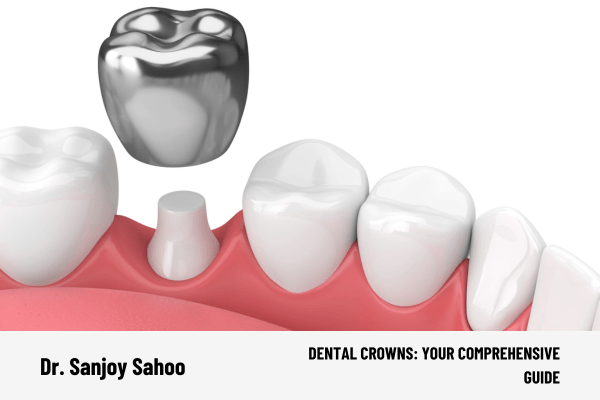What Are Dental Crowns?
A dental crown is a custom-made, tooth-shaped cap that is placed over a damaged or weakened tooth to restore its shape, strength, and function. It is typically crafted from materials like porcelain, metal, or a combination of both, and is designed to match the color and shape of your natural teeth.
Common Uses of Dental Crowns:
- Restoring Damaged Teeth: Crowns are used to repair teeth that are chipped, cracked, or extensively decayed, strengthening them and preventing further damage.
- Protecting After Root Canal: Teeth that have undergone root canal treatment are often fitted with crowns to protect the tooth and restore its function.
- Covering Discolored or Misshapen Teeth: Crowns can improve the appearance of teeth with severe discoloration or irregular shape.
- Supporting Dental Bridges: Crowns serve as anchors for dental bridges, replacing missing teeth.
- Concealing Dental Implants: Crowns are placed on top of dental implants to create natural-looking replacements for missing teeth.
The Crown Placement Process:
- Examination: Your dentist will assess your oral health, take impressions, and determine the crown’s material and shade that best matches your teeth.
- Tooth Preparation: The tooth is prepared by removing any damaged or decayed portions, making room for the crown.
- Temporary Crown: A temporary crown is placed while the custom crown is fabricated at a dental lab.
- Crown Placement: Once the permanent crown is ready, it is securely bonded to the prepared tooth.
Conclusion:
Dental crowns are a versatile and effective solution for various dental issues. If you’re experiencing dental problems or need restorative work, consult the best dentist in South Kolkata to determine whether dental crowns are the right choice for you. With proper care, dental crowns can offer long-lasting results, protecting your oral health and enhancing your smile.

